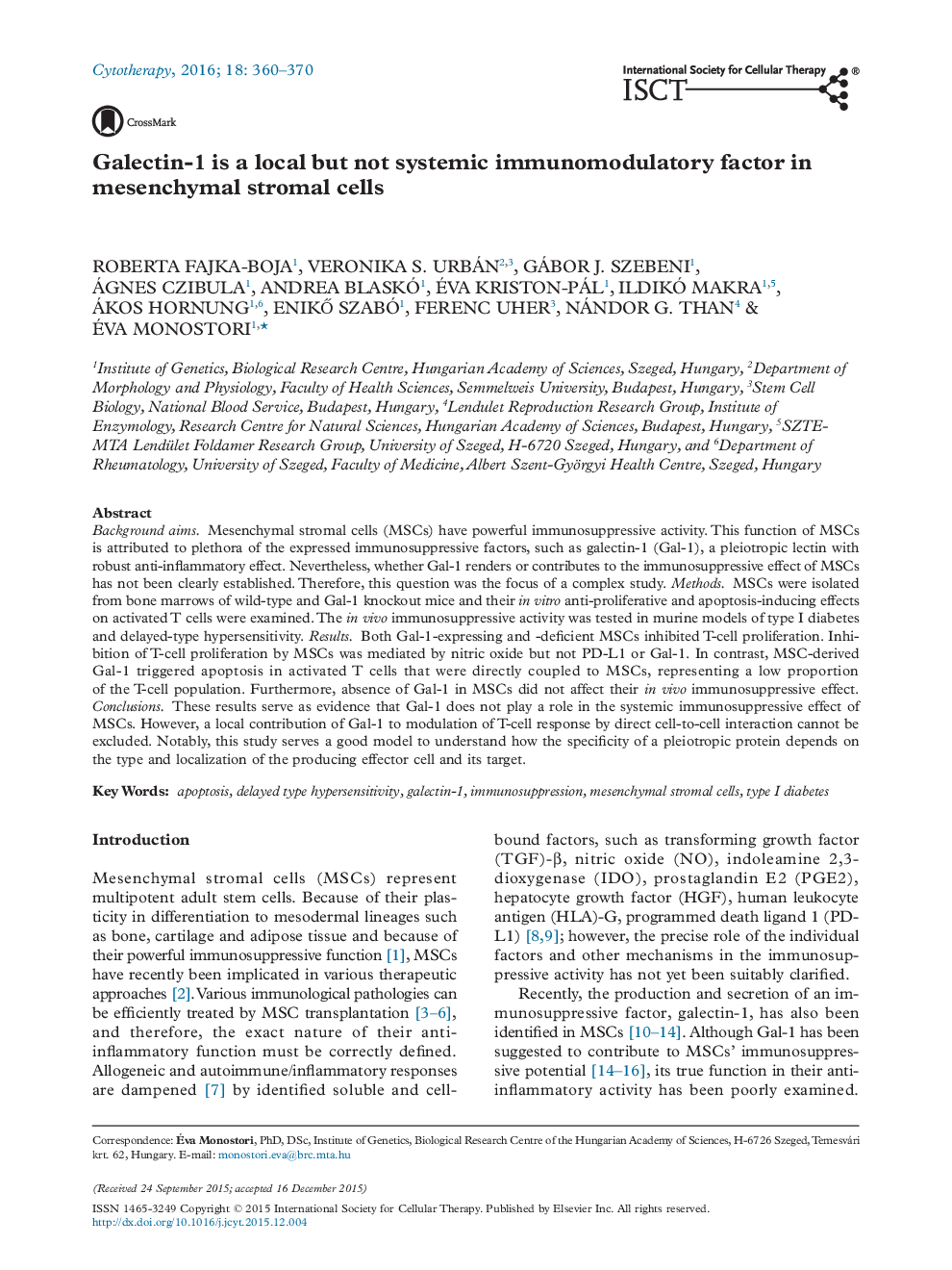| Article ID | Journal | Published Year | Pages | File Type |
|---|---|---|---|---|
| 2171030 | Cytotherapy | 2016 | 11 Pages |
Background aimsMesenchymal stromal cells (MSCs) have powerful immunosuppressive activity. This function of MSCs is attributed to plethora of the expressed immunosuppressive factors, such as galectin-1 (Gal-1), a pleiotropic lectin with robust anti-inflammatory effect. Nevertheless, whether Gal-1 renders or contributes to the immunosuppressive effect of MSCs has not been clearly established. Therefore, this question was the focus of a complex study.MethodsMSCs were isolated from bone marrows of wild-type and Gal-1 knockout mice and their in vitro anti-proliferative and apoptosis-inducing effects on activated T cells were examined. The in vivo immunosuppressive activity was tested in murine models of type I diabetes and delayed-type hypersensitivity.ResultsBoth Gal-1-expressing and -deficient MSCs inhibited T-cell proliferation. Inhibition of T-cell proliferation by MSCs was mediated by nitric oxide but not PD-L1 or Gal-1. In contrast, MSC-derived Gal-1 triggered apoptosis in activated T cells that were directly coupled to MSCs, representing a low proportion of the T-cell population. Furthermore, absence of Gal-1 in MSCs did not affect their in vivo immunosuppressive effect.ConclusionsThese results serve as evidence that Gal-1 does not play a role in the systemic immunosuppressive effect of MSCs. However, a local contribution of Gal-1 to modulation of T-cell response by direct cell-to-cell interaction cannot be excluded. Notably, this study serves a good model to understand how the specificity of a pleiotropic protein depends on the type and localization of the producing effector cell and its target.
